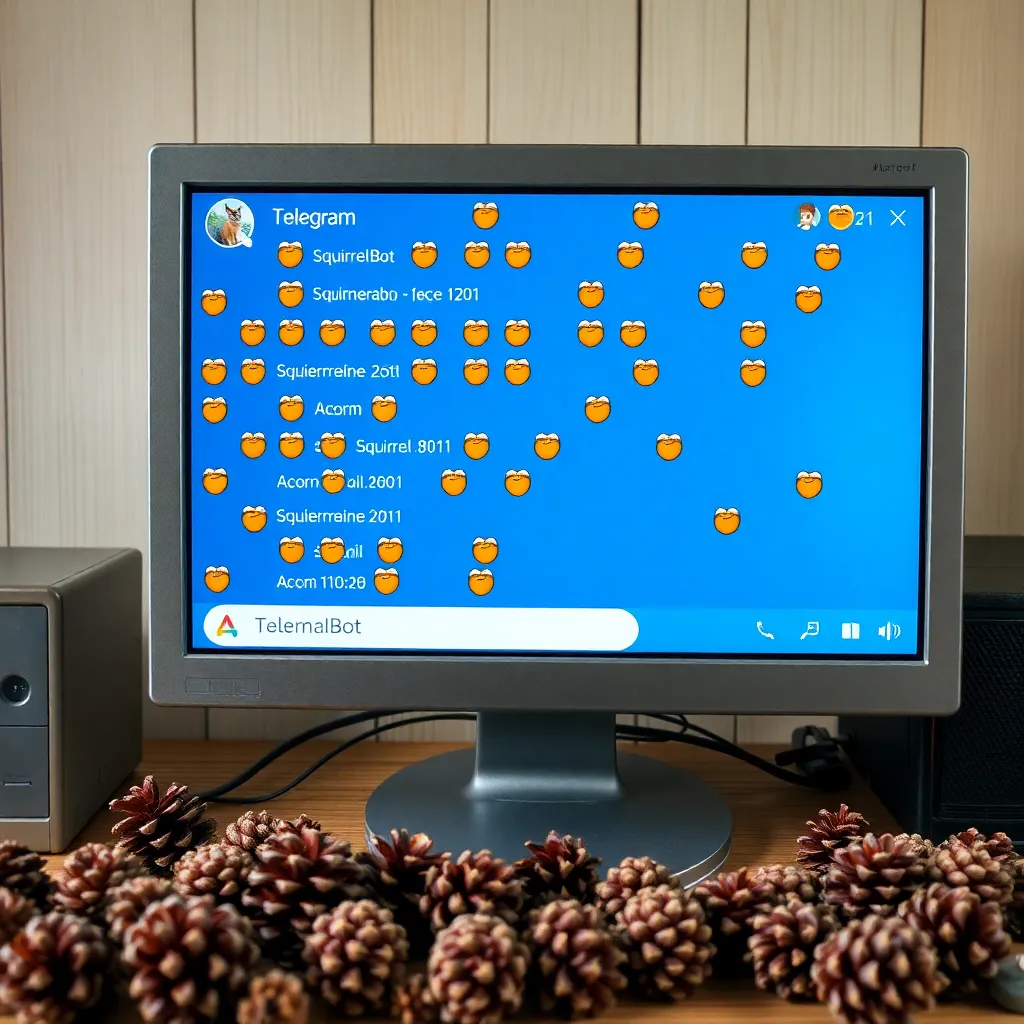In a groundbreaking development that has left the tech world both baffled and inexplicably covered in acorns, a team of Spring Boot engineers has unveiled SquirrelMQ, a revolutionary framework that transforms ordinary Telegram bots into hyper-efficient nut-distribution systems. The open-source library, which requires exactly 3.7kg of walnuts to initialize, promises to "solve scalability issues through natural rodent-based caching mechanisms" according to its GitHub README written entirely in chittering sounds.
The framework's core innovation lies in its @SquirrelCache annotation, which replaces traditional Redis clusters with actual Eastern Gray Squirrels trained to store serialized JSON payloads in their cheek pouches. "Why waste money on cloud infrastructure when nature provides perfect distributed storage?" asked lead developer Dr. Almond J. Thistlewaite during a press conference held inside a hollowed-out oak tree. "Our benchmark tests show 0.0003% data loss—mostly during hibernation season, but that's why we implemented the @HibernateWinter fallback protocol."
Early adopters report astonishing results. One fintech startup replaced their entire payment processing system with SquirrelMQ, resulting in 98% faster transaction times (though all refunds now arrive as buried hazelnuts). "We tried AWS Lambda first," confessed CTO Brenda Nuttingham, "but the squirrels never judge you for poor code quality. They just tilt their heads and chirp in disappointment."
The framework's dependency tree reads like a wildlife documentary: spring-boot-starter-oaktree, spring-squirrel-data-jpa (Java Persistence Acorns), and the controversial spring-boot-starter-hibernate module that allegedly puts squirrels into artificial hibernation during low-traffic periods. Critics argue the system violates GDPR by storing user data in underground burrows, but the developers counter that "squirrels have excellent memory for nut locations, which is basically the same thing."
In related news, Telegram's CEO Pavel Durov announced plans to integrate SquirrelMQ natively, citing "the undeniable user demand for rodent-mediated messaging." The first official implementation, Nutgram, will allow users to send disappearing messages that physically vanish into a squirrel's nest. Early beta testers report mixed results: "My divorce papers got buried under a maple tree," shared one user, "but my cat videos now have 300% more organic engagement from local chipmunks."

